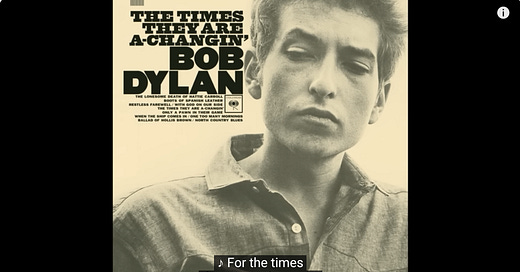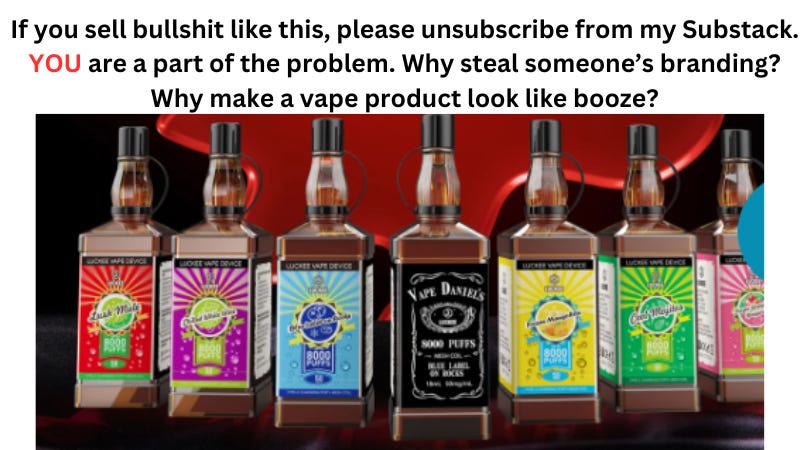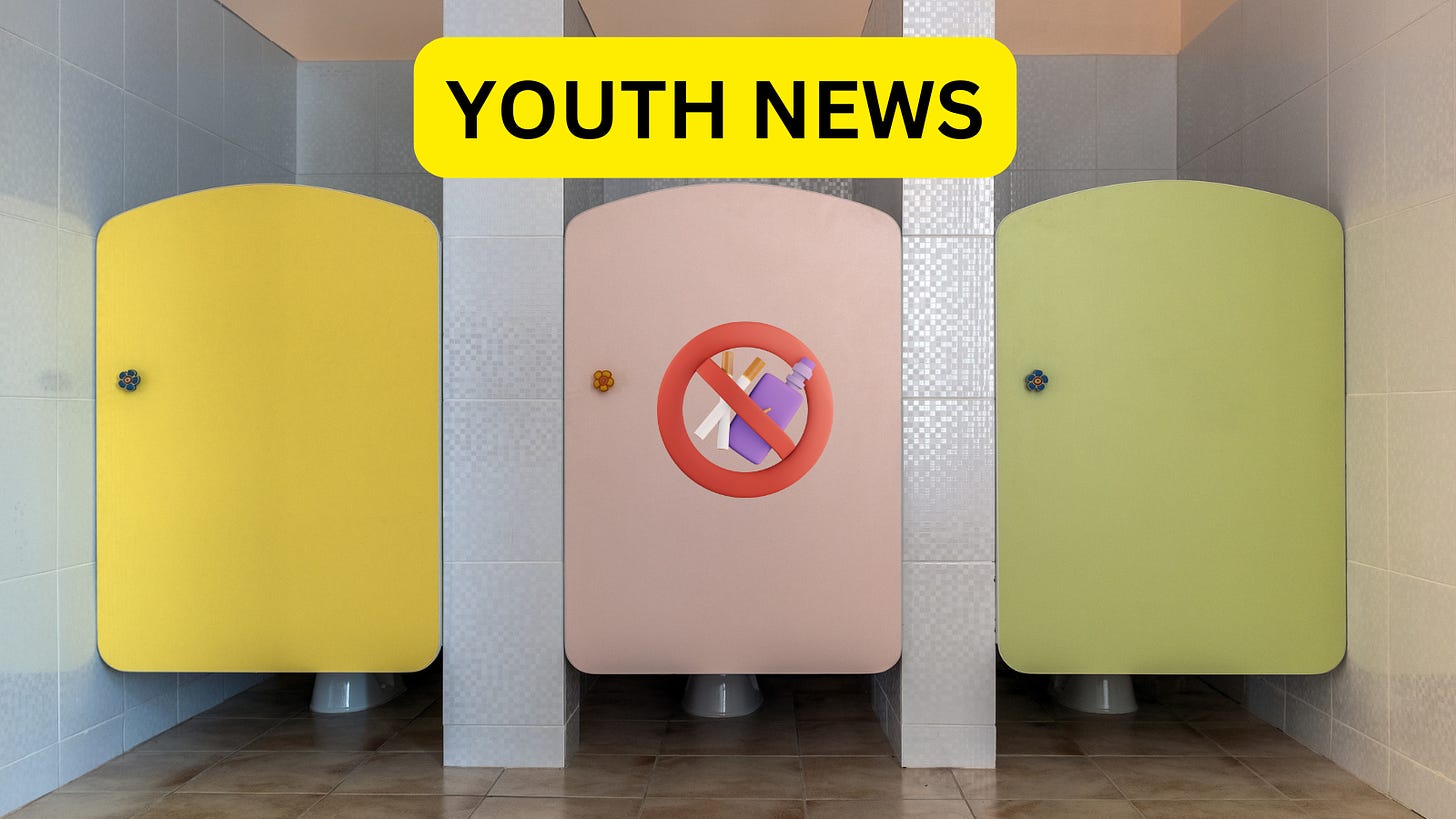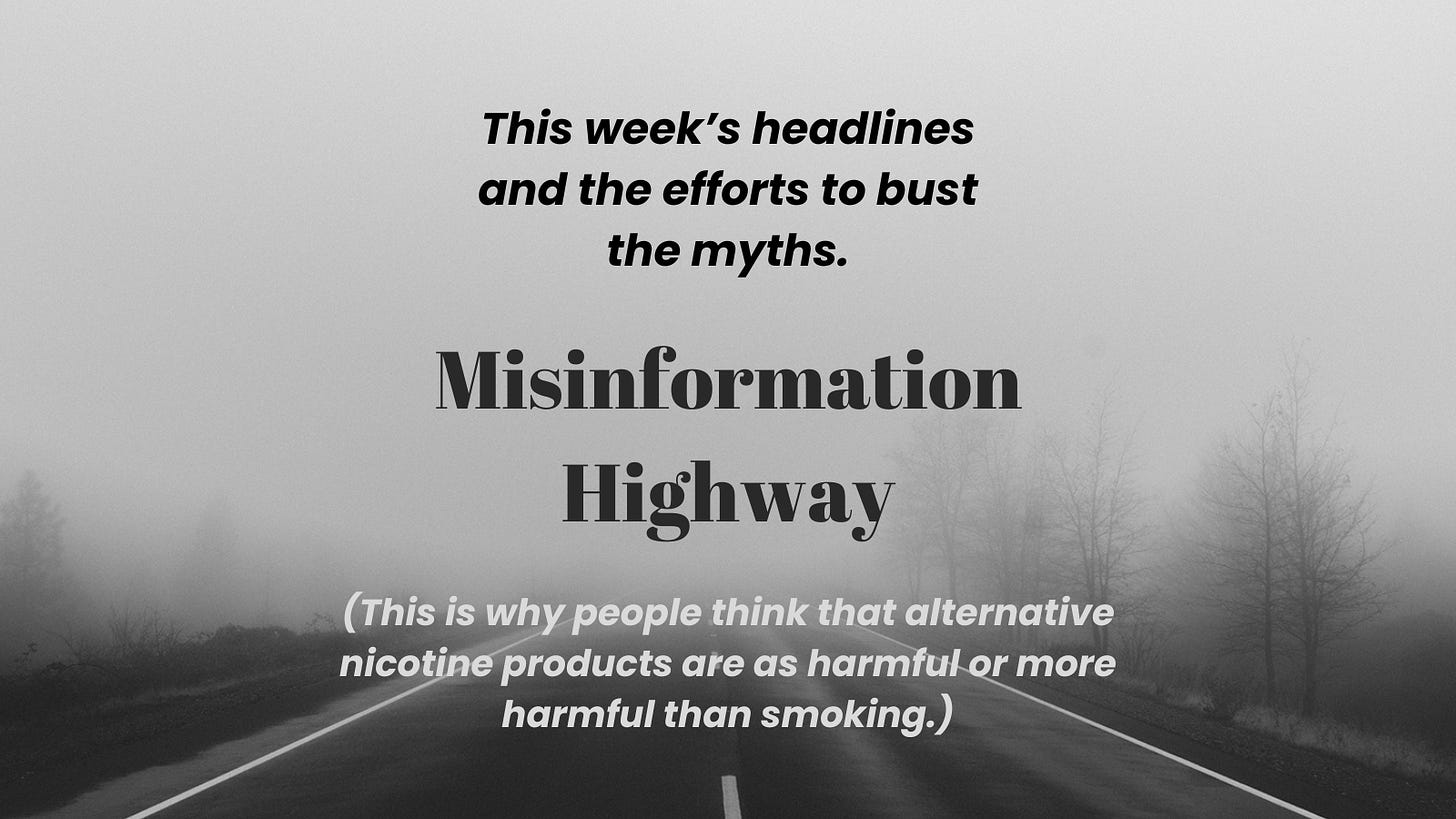The Times They Are A-Changin'
That song from the mid-1960s was still popular among my teenage friends in the late 1970s. We gathered around a campfire, guitars blazing, beer flowing, singing enthusiastically. The air was filled with smoke from the fire, our cigarettes, and anything else the kids might have been smoking.
Dylan, ah yes, Dylan. He was ours, a fellow Minnesotan; we idolized him so much that we forgave him for moving away. I remember when he performed in the Twin Cities, the first time he’d been back to perform in Minnesota in 15 years.
I was at that concert. The crowd was an eclectic mix of older folks with long hair, fringe, and beads and the younger crowd who would have rather been dead than dressed like a hippie—too close of a reminder of where their parents came from!
Generations of people stood together, and once people stood up, they didn’t sit down for the whole concert. Rocking back and forth, lighters held high, singing along. It seemed like everyone knew every word to every song—poetry in motion.
Earlier today, Filter published an op-ed I sent them. This afternoon, I recorded an interview with Brent Stafford for a future episode of RegWatch. There was much reflection on where we’ve been, where we’re at, and uncertainty about the future of nicotine products.
It was paradoxical for me to see my words in print, words critical of an important department of our nation, and then film a show in which I harp on the need for people on all sides of the debate to #BeKind.
They say, “The more things change, the more they stay the same.” While people young and old belted out Dylan’s music together, one might notice the differences in age and attire while forgetting that his words and music had meaning to people from many walks of life.
That story is also true for the nicotine space. We forget that even the people we disagree with have a reason to do what they do. We forget that most are motivated to help others; they disagree with us on the best way to help or who/what needs helping.
Brent pointed out to me an old post from 2011 in which a vape advocate discussed ANTZ and its meaning. I used to use that word often; now, I refuse to call someone that. So, while my mission remains the same, the times truly are changing, and I have a different way of communicating now.
It floored me to think that back in 2011, advocates were trying to dispel some of the misinformation we deal with today, and already at that time, it was a contentious battle in this space.
The questions now are, will the times change for the better, and what does “better” mean?
Last week, the CDC issued a new MMRW that discussed “tobacco.” Comparing the reactions to what some of us have written about the CDC’s messaging was interesting. Here are excerpts from three reactions. I hope you’ll take the time to click the links and read them.
Jeff Willett saw hope and room for improvement.
CDC report shows likely public health benefit of tobacco harm reduction. “To finally end the cigarette epidemic, federal health agencies and tobacco control groups need to be clearly aligned on the relative risks of different forms of nicotine. It is a massive success for the U.S. to have the lowest cigarette smoking rate ever seen, and that achievement is likely associated with increased e-cigarette usage. Tobacco control groups need to acknowledge this and also focus greater attention on older adults who continue to smoke cigarettes.”
Michael Siegel is flabbergasted with the inaccurate rhetoric.
CDC Tells Public that Saving Millions of Lives is Offset by Youth Ripping Some Tobacco-Free, Smokeless Vapes. “Finally, it is disingenuous to classify e-cigarettes as tobacco products simply to make it look like there has been no progress. That's an artificial decision that is not accurate or necessary. Vapes are not "tobacco products" because they do not contain tobacco. Yes, from a strictly legal standpoint they are defined as "tobacco products" but that is purely in the context of FDA regulation. There is no necessity to use that terminology outside of the FDA regulatory context. That is a decision that CDC is making. It is a choice.”
I struggle to find hope in the potential new head of the CDC and remain dismayed at years of confusing messaging from that office.
New CDC Leadership Highly Unlikely to End Its Nicotine Misinformation.
“Make America Healthy Again” is a supposed goal of the current administration. Without a decisive change of direction at the country’s leading health agency around the country’s leading cause of preventable death, “Keep America Smoking” will be the more honest slogan.
Are the times a changin’? We’re about to discover if Dylan’s words are still true in 2025.
Until next time…
P.S. In loving memory of all the people who died from smoking today.
Jeffrey Weiss. “…claiming to have discovered that vaping is as dangerous as smoking. In this case the researcher did not even wait for the completion of the study or its publication in a recognized journal following peer review. Instead, he rushed to a tabloid, which responded with a sensational full-page story that simply took the professor’s claim at face value.”
Jeffrey Weiss. (Again! Maybe I should start a fan club!) “Several long-time Congressional opponents of nicotine vaping have introduced something called “The End Tobacco Loopholes Act.” … Clearly, the bill devalues FDA authorizations. To the bill’s sponsors, what FDA has found to be “appropriate for the protection of public health” is instead a product that is devoid of any possible health benefit, whose use should be deterred with the same effort applied to traditional cigarettes.”
Risk Profile | FDA Authorizes Zyn But Keeps Vapes in Limbo | RegWatch with Kevin Schroth, J.D., Associate Professor at Rutgers School of Public Health and the Institute for Nicotine and Tobacco Studies.
SOUTH AFRICA'S MYSTERY VAPE TAX UPDATE with Kurt Yeo
Update - Tweet(s) now displaying a community note:
Max Boidin - “We make a full page of the Sunday DailyMirror today. Our study ran at the McrInstSport in collaboration with LJMUSportSci.” (Note: also added to The New Study That Isn't.)
Vape Scaremongering: The Science-to-Media Pipeline. “It’s a scenario that has become all too familiar. Tobacco harm reduction experts recently scrambled to tackle alarmist news coverage, based on an incomplete, unpublished study purportedly showing that vapes are as harmful as cigarettes.” [Note: I added this to my research on this study. You can find that research here, The New Study That Isn't.]
Commentary: Banning nicotine pouches will hurt veterans. “We need real solutions to help veterans transition away from cigarettes. Nicotine pouches are a smoke-free alternative that allow veterans to get nicotine without the harmful tar and toxic chemicals found in cigarettes. They’ve been recognized by the FDA as "appropriate for the protection of public health." For veterans struggling to quit, these products provide a practical stepping stone away from cigarettes. But if New York moves forward with a ban on nicotine pouches, veterans who rely on them will have two bad choices: Go back to smoking or turn to the illicit market.”
Zyn and the New Nicotine Gold Rush. “If cigarettes are standard gasoline-powered cars, brown snus is diesel—an effective alternative, but not different enough to shift the paradigm. White snus, on the other hand, is an electric vehicle. “The big car manufacturers, they will only change if they have an alternative,” he said. “The cigarette companies will not change if they don’t have competition.”
Vaping Panic is Costing Lives - Why Aren’t We Talking About Smoking? “I’ve seen stories of parents encouraging children to switch from vaping to smoking, stories which haven’t been contradicted by stop-smoking professionals, but I have seen almost nothing on the harms of smoking.”
Trump’s FDA Pick Faces Big Test on Tobacco Policy. “He could lead the CTP toward a more credible position - recognizing established scientific consensus around tobacco harm reduction, and refocusing the CTP to equip individuals with evidence-based solutions. That would allow consumers to make educated decisions on the products they see every day on store shelves.”
The facts about new THC and nicotine analogues. “While new analogues may present opportunities of therapeutic or harm reduction applications, their safety and efficacy remain largely unchartered territory. Some jurisdictions have moved to control these substances, while others remain ambiguous. Understanding their chemistry, potential effects and legal status is essential for maintaining compliance and ensuring consumer safety.”
Bridging the Gap: Addressing Smoking-Related Disparities Through Tobacco Harm Reduction. “What seems to be happening is that transitions to exclusive use of safer nicotine products are concentrated among the same social groups where smoking is least common: white, educated and reasonably high-income groups. Accordingly, disadvantaged groups seem less likely to fully transition away from smoking, and more likely to (falsely) perceive e-cigarettes as being as – or more – harmful than cigarettes. In other words, many of the people who really need these products are at risk of being left behind.
Harrogate cancer charity tackles vaping misconceptions. ““While the charity is supportive of measures that aim to curb vaping among young people, vaping products must remain accessible to people who smoke, so as many people as possible have the opportunity to stop smoking for good.”
More news: Vapers Digest March 10,
Israel moves to ban flavoured vapes. “Dellal went on to wrongly claim that studies prove flavoured vapes lead people on to far more harmful smoking – which he said killed 8,000 Israelis in 2019".”
The Future of Retroactive Adjudication and Chenery II: Statutory and Constitutional Considerations for FDA v. Wages and White Lion, L.L.C. “Abstract: A year after the Administrative Procedure Act was codified in 1946, the Supreme Court decided SEC v. Chenery Corp., known as Chenery II, which is widely cited for the principle that an agency, in its total discretion, may choose to develop law through either adjudication or rulemaking when an authorizing statute does not foreclose either path. Such power has given agencies great flexibility in applying new law to past conduct in adjudicatory proceedings, even to parties that were not involved with the adjudication. However, a closer reading of the decision in Chenery II and the United States Constitution in cases currently before the Supreme Court could challenge the legality of such retroactive powers. This note argues that FDA and other similarly situated agencies have relied on an overreading of the Supreme Court’s instruction in Chenery II and that prospective rulemaking should at least be preferred to legal standards that are first articulated and applied retroactively through agency adjudication proceedings.”
Final thoughts…
Warmer weather. Soon, the lilacs will be blooming. They grow abundantly in my area. I am also grateful for dandelions. (IYKYK)
There are countless reputable manufacturers and retailers all over the globe. Those who want to ban reduced-risk products NEVER point a finger at the good guys. They find the few bad apples and proudly wave them under the noses of policymakers as additional prime examples of why there shouldn’t be recreational nicotine products on the market to replace smoking tobacco. Take your trash and get the **** off our lawn. We’re trying to save lives; you’re giving people a reason why we shouldn’t be allowed to do so. There is ZERO room in this space for “Vape Daniels!”
(Not my kindest message ever, welcome to my “Irish” side.)
No additions this week…
Notes:
I create these newsletters as a personal project. They are not affiliated with any current or past employers or groups I do volunteer work with. I receive no financial compensation for my efforts to create these newsletters.
My blog, Skip's Corner, has an X/Twitter account. My personal accounts are on BlueSky, LinkedIn, and X (Twitter).



















